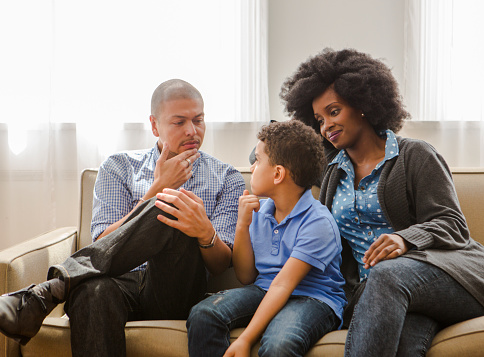Welcome to our blog post on how to build more connections with yourself or with your partner. Building a strong connection is essential for a healthy and fulfilling relationship. Whether you’re focusing on connecting with yourself or with your partner, this post will provide you with practical tips and strategies to enhance your connection. Let’s dive in!
Understanding the Importance of Connection
Building a strong connection with yourself or your partner is crucial for a healthy and fulfilling relationship. Connection enhances emotional well-being and promotes a sense of security and belonging. Strong connections lead to better communication, understanding, and intimacy. The connection allows for personal growth and a deeper understanding of oneself or one’s partner.
Recognizing the Signs of Disconnection
There are several signs that may indicate a disconnection within yourself or your relationship with your partner. It is important to be aware of these signs in order to address them and work towards reconnecting.
- Lack of communication or frequent arguments: When communication becomes strained or arguments become more frequent, it may signify a disconnection.
- Feeling emotionally distant or not being present in the moment: If you find yourself feeling emotionally distant or not fully engaged in your interactions with your partner, it can be a sign of disconnection.
- Loss of interest in spending quality time together: When you or your partner no longer seem interested in spending quality time together, it may suggest a disconnection.
If you recognize any of these signs, it is important to address the underlying issues and make an effort to reconnect. Ignoring these signs can lead to further disconnection and potential damage to the relationship.
Creating a Safe and Supportive Environment
Creating a safe space where both partners feel heard and validated is essential for building a connection. Open and honest communication fosters a supportive environment. Respecting each other’s boundaries and needs promotes a sense of safety. Providing emotional support and empathy helps strengthen the connection.
Practicing Active Listening and Empathy
Active listening involves fully engaging with your partner’s words and emotions. It means giving them your full attention and showing genuine interest in what they have to say. Put aside distractions and make eye contact to convey your attentiveness.
Showing empathy is a key aspect of building connections. Empathy is the ability to understand and share your partner’s feelings. Validate their emotions by acknowledging and accepting their experiences without judgment or criticism.
When actively listening and practicing empathy, refrain from interrupting or interjecting with your own thoughts. Allow your partner to express themselves fully. By doing so, you create a safe space for open communication and strengthen your connection.
Engaging in reflective listening is another important skill to enhance connection. This involves paraphrasing and summarizing what your partner has shared to ensure understanding. It shows that you are actively processing their words and helps clarify any misunderstandings.
Building Trust and Vulnerability
Trust is the foundation of any strong connection. When you trust your partner, you feel secure in the relationship and have faith in their intentions and actions. Conversely, the vulnerability allows you to open up and share your true self with your partner, creating a deeper bond. Here are some ways to build trust and vulnerability in your relationship:
- Be open and honest: Communicate your thoughts, feelings, and desires openly and honestly with your partner. This transparency fosters trust and vulnerability.
- Show reliability: Follow through on your commitments and be reliable. When your partner sees that you consistently keep your word, trust is strengthened.
- Take risks: Being vulnerable means taking risks and stepping out of your comfort zone. Share your fears, insecurities, and dreams with your partner, allowing them to see the real you.
- Create a safe space: Foster an environment where both partners feel safe to express themselves without judgment or criticism. This safety encourages vulnerability and builds trust.
- Practice forgiveness: Mistakes happen in every relationship. By forgiving each other and letting go of past hurts, you create space for trust and vulnerability to thrive.
- Support each other: Be there for your partner during both good times and bad. Providing emotional support and being a reliable source of comfort strengthens trust and vulnerability.
Nurturing Emotional Intimacy
Emotional intimacy involves sharing your inner thoughts, fears, and desires with your partner. It is a deep connection that allows for vulnerability and understanding. Here are some ways to nurture emotional intimacy:
- Express love and affection regularly to your partner. Small gestures, such as hugs, kisses, or compliments, can go a long way in fostering emotional intimacy.
- Engage in deep conversations and explore each other’s emotional worlds. Take the time to discuss your dreams, fears, and aspirations. Listen actively and show genuine interest.
- Create rituals that are meaningful to both of you. It could be a weekly date night, cooking together, or simply taking a walk hand in hand. These activities strengthen your emotional bond.
- Spending quality time together is crucial. Disconnect from distractions and truly focus on each other. This could be watching a movie together, going for a hike, or simply cuddling on the couch.
Nurturing emotional intimacy takes time and effort. By prioritizing open communication, expressing love, and dedicating quality time to each other, you can deepen your connection and create a strong emotional foundation in your relationship.
Conclusion
Building a strong connection with yourself or with your partner is vital for a fulfilling and healthy relationship. It enhances emotional well-being, promotes a sense of security and belonging, and leads to better communication, understanding, and intimacy. Recognizing the signs of disconnection, such as lack of communication or emotional distance, is crucial in addressing and resolving the underlying issues. Creating a safe and supportive environment that encourages open and honest communication, respect for boundaries, and emotional support is essential for building connections. Practicing active listening and empathy, as well as building trust and vulnerability, are key components in strengthening the connection. Additionally, nurturing emotional intimacy through sharing inner thoughts, expressing love and affection, and spending quality time together can help deepen the connection. By implementing these strategies, you can create a strong and lasting connection with yourself or your partner, fostering a fulfilling and meaningful relationship.




